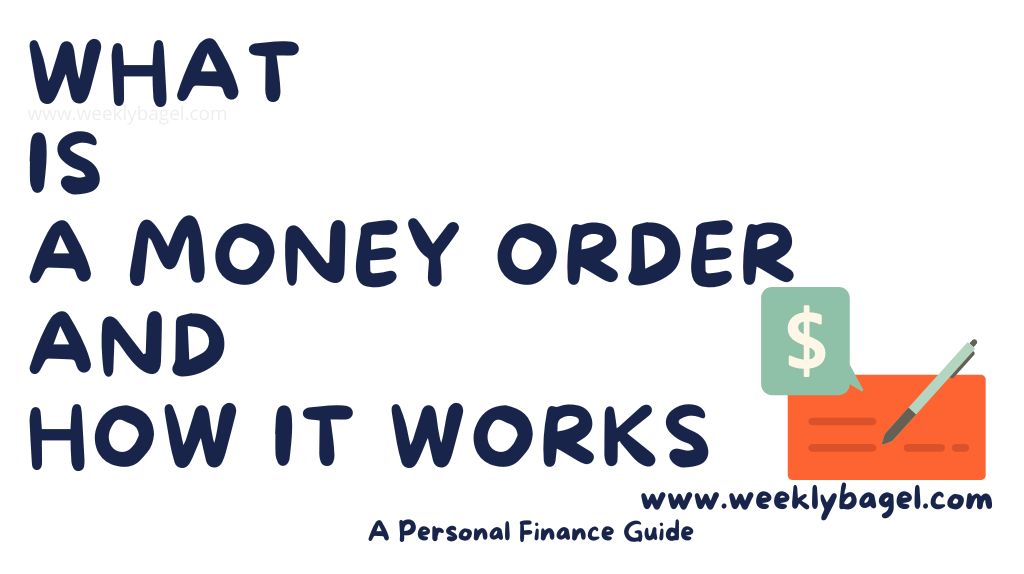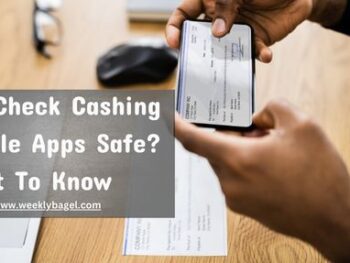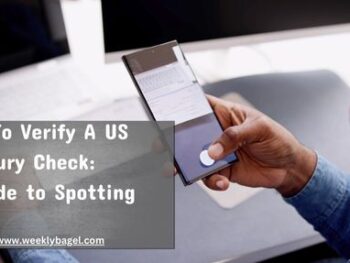
In a generation where instant online payments are the norm, a money order is rarely considered. However, financial transactions which require immediate fund dispense with minimal information need it. This is because a money order does not have problems associated with personal checks and other financial means of payments.
By problems here, I refer to the issues of insufficient funds and check bounce. Unlike personal checks whose payments have to be drawn from a bank account, a money order is a prepaid check. It is like cash on paper. Hence, why it does not have payment issues like other means of payment.
Having said that, here are what to know about money orders.
Having said that, here are what to know about money orders.
What Is A Money Order
A money order is a prepaid form of payment issued by financial institutions, government institutions and some money services. It works like a cashier’s check, because the amount on the money is prepaid and receiver’s name are written on the paper. But, it is not really a check because the fund is not drawn from a bank account.
This is especially, when you are buying the money order from money services like a postal service or big retail stores. You can pay for a money order with cash or debit card.
In addition, it is cannot be rejected wherever you go to cash it. This is as long as it is a legitimate one. This is due to the fact, money orders are like a directive by the issuer to the cashing place, to pay the amount on the order. Therefore, payment of its amount is guaranteed without any delay whatsoever.
Some notable examples of money orders include a MoneyGram order, a Postal order and a Western Union order. These are also some well-known order services in the United States. Besides these, there are others you can get from big retail locations, banks and gas stations.
How Does A Money Order Work
You can just walk into places that do money order and purchase one. Most places will only accept a cash or debit card payment plus a small fee. So, what information is needed for the transaction?
A money order needs the name of the payee, the amount, the payer’s name and the address of the payee. It requires minimal information on it. Most will just ask you the amount you want to buy, the name of the receiver and the address.
Oh yes- ordering money order is that easy.
This is what makes a money order a convenient means of payment. Whoever you are trying to pay, does not need to know your bank information as with personal checks. This is why it is popular amongst people with no bank accounts and certain financial transactions.
Is Money Order Safe For Financial Transactions
Given the minimal information needed for it, just how safe are money orders?
There are no risks of accepting money orders. It is a safe way to pay someone or be paid. This is because money orders are not hard to cash since payment is guaranteed.
Without your receipt though, a money order is hard to trace when it is lost or stolen. This is why I always recommend people to keep their receipts until their money orders are paid. That way, it will be easy to track when it gets lost or stolen.
As long as you have your receipt, you can always track your order wherever you purchase it. Places like Western Union and USPS will let you track it online. The tracking number is always on the receipt you are given. It makes it easy to ask for a refund or a replacement.
What Do You Need For A Money Order Transaction
You need the following below to buy a money order:
- A government issued ID.
- Cash, debit card or traveler’s check.
A government issued ID like a state driver license, federal ID or passports can be used to buy or receive a money order. This is just like any other monetary transaction in the United States. This makes it easy to track people who use money orders for nefarious purposes.
Additionally, most places that do money orders will not accept credit card payment. This includes USPS, Walmart, Western Union, MoneyGram and most big retail stores. Therefore, my advice to you is to take some cash, a debit card or a traveler’s check with you.
Finally, you only need a form of ID to cash a money order. This is just to confirm the order is meant for you. Any form of the IDs listed above will work.
Which Is Cheaper: Money Orders Or Cashiers Check
Money orders are cheaper than Cashier’s check. Although you will be charged a fee to get either one, the maximum fee for domestic money orders is usually less than a $2 regardless of amount purchased. On the other hand, a cashier’s check fee is higher, since you can only get it from a bank.
Financial institutions like banks and credit unions can only issue cashier’s check. This is because the fund comes from a bank account. Hence, the high fee is a result of monopoly. Do you understand, my good reader?
How Much Is Too Much For A Money Order
The largest amount you can get for a money order is $1000. This is the maximum amount you can get anywhere. Although places like Western Union or the Military USPS can allow you to increase the amount under certain circumstances, but it is hard to get more than the $1000 order limit.
Here is what I usually do, when I need more than $1000 order.
I buy more than one order. You are allowed to purchase a certain number of money order per day. If you want $3000 on your order, just get three separate $1000 orders. I guess you could say this is one of its disadvantages.
Where To Buy Money Orders
The following places below will sell money orders to you:
- Postal Services like USPS.
- Your Local Bank
- Big retails like Publix.
- Credit Unions
- Some Pharmacies like CVS
- Gas stations like Circle gas station.
- Money Service locations like Western Unions
You can read my article, Where To Get Money Orders Easily for more places and how much they charge for fees. I recommend you read it, before heading out to buy one. This is to avoid surprises, which may send you back home to get what you forgot to take with you.
Pros and Cons Of Money Orders
Money orders are good. At the same time, there are pros and cons to them. You need to know this, in order to determine whether you need it rather than a cashier’s check.
Advantages Of Money Order
The benefits of a money order are:
- There are no hefty fees as in cashier’s checks.
- Payment is immediate and guaranteed. A money order will never bounced, unless it is a fake one.
- It can be used internationally, as long as the selling place has branches outside the United States.
- There is minimal information about the payer. So, it is perfect for transactions where you do not want people to disclose a lot of information about you.
Disadvantages Of Money Order
The disadvantages of a money order include:
- It has a $1000 maximum amount limit.
- Refund or cancellation is hard without the receipt of transaction.
- You will be charged for a refund or replacement. This is usually withdrawn from the principal amount of your order.
- After a few years of not being used, a service fee is charged. This is deducted from the principal amount on the order.
Despite these pros and cons, money orders are great financial instrument of payments. They are great for quick and convenient transactions. You want to use it when you are in doubt, that a personal check may bounce.




 Where To Get A Money Order Easily
Where To Get A Money Order Easily